In February 2010, 21-year-old student Shamshiddin Abdur-Raheem abducted his 3-month-old daughter, Zara. He placed her in a knapsack, drove to a bridge on the Garden State Parkway in New Jersey, and threw her out of the passenger side window of his car. She drowned in the Raritan River, more than 100 feet below.
In November 2011, also in New Jersey, Arthur Morgan picked up his 2-year-old daughter, Tierra, for a trip to the movies. Later, Tierra was found facedown in a frigid stream beneath a park overpass, strapped into a car seat that had been weighed down with a car jack. It was unclear whether she was thrown from the overpass or carried into the park and placed in the water.
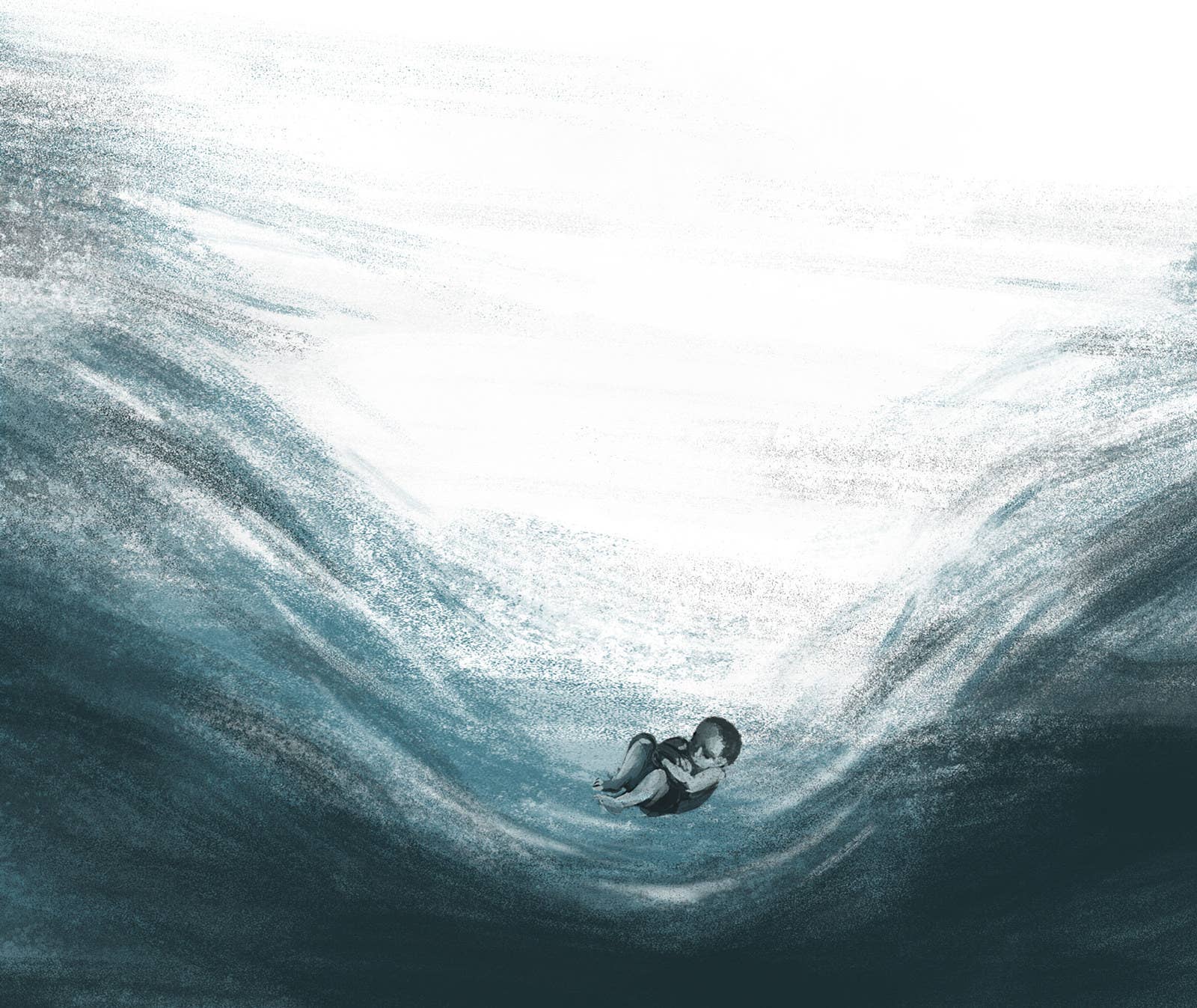
I. Surprise
There is no drunk like the drunk of milk sleep. A drizzled white floods the body and weighs down everywhere we think we know about awake. Zara’s new clockwork staggers with it while daddy, grizzle and wild-eye, lobs her like trash over the rusting rail. Inside the sack, the wriggling child cannot translate fly, plummet, descend. She doesn’t realize the hard questions she poses for pigeons or how, so dull and stupid with dairy, she is all the fall the sky can language.
Babies accept what they are given. They never question the morning’s flood of sun, a kitchen’s blaring stink, or the wide hovering faces of fathers. After a swollen breeze pries her eyes open in the few seconds it takes for the fevered discarding of daughter, baby doesn’t ask the sun, needling light into the sack, to offer rule or direction. Zara Malani-Lin Abdur-Raheem, little not-bird, has been jettisoned, ditched, unloaded.
Her snared arms can find no rhyme for wing. The river’s glittering trash smacks her blunt, but not before her tiny O fails its role as mouth, not before language breaks its promise to wait for her. If Zara can conjure no word for word, can find no way to bellow up, daddy, up as she tumbles, stuffed inside a downdowndown reeking so oddly of him, how would she voice panic born of the wind’s quick fist? Slapped awake, she breathes in the close cloth and feels the thud of her own drunken heart. The startled river opens, then closes over her, the way a new mother would.
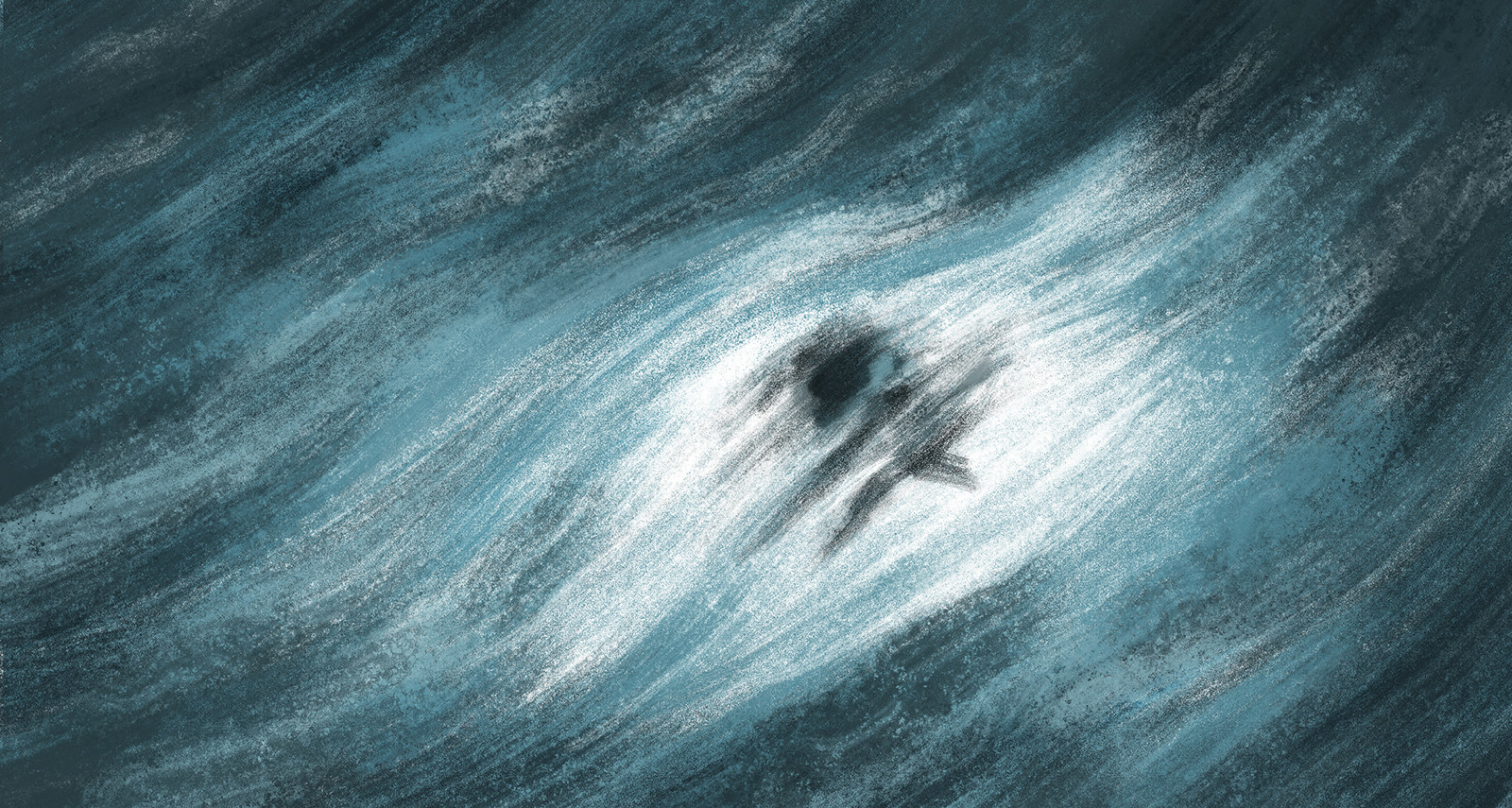
II. Involuntary
Breath Holding
Imagine filling your whole body with everything you are and then holding it there. Imagine the smallness of that body. You are nothing but the easy of blue, red and green, food you have smashed with your fingers, and the stumbling possibilities of walk. Imagine not knowing whether you can contain all of you in tiny ballooned cheeks decides whether you continue. Imagine not knowing the word continue.
Quick wisps of fish nip warily at those fat cheeks, fall into irreparable love and decide to make a new religion of you. Hallelujah, you are now a religion, a church of slither and slide while daddy roars his glee into noontime traffic, not thinking about you, but thinking about your mother, screeching Oh, she got another man now huh? Well, fuck that ho, I got sumthin for her ass.
Bet this gon fix her bitch ass now, and you, Tierra, are the fix for her ass now, you are the fix for mama’s ass now, you are the pawn in a payback that cannot be unplayed. And your daddy, miles away from your slow plunging, does a lousy parking job and stumbles into a smoky, red-walled gin mill populated by other men without daughters. Hoisting a fat gold shot, he toasts his one accomplishment—the uncomplicated removal of a complication.
Your cheek deflates and the door to your next minute
closes. You were alive when the stream first lapped its way ‘round you, and the d sound comes so sweet to the mouth of a baby who wants it. You laughed d—daddy until the giddy fish re-examined their worship of you, you coughed coughed daddy daddy until daddy daddy was nothing but sound and you spat d d d into the mud until you couldn’t. The fickle fish, back in love with you, kissed where your breath had been.
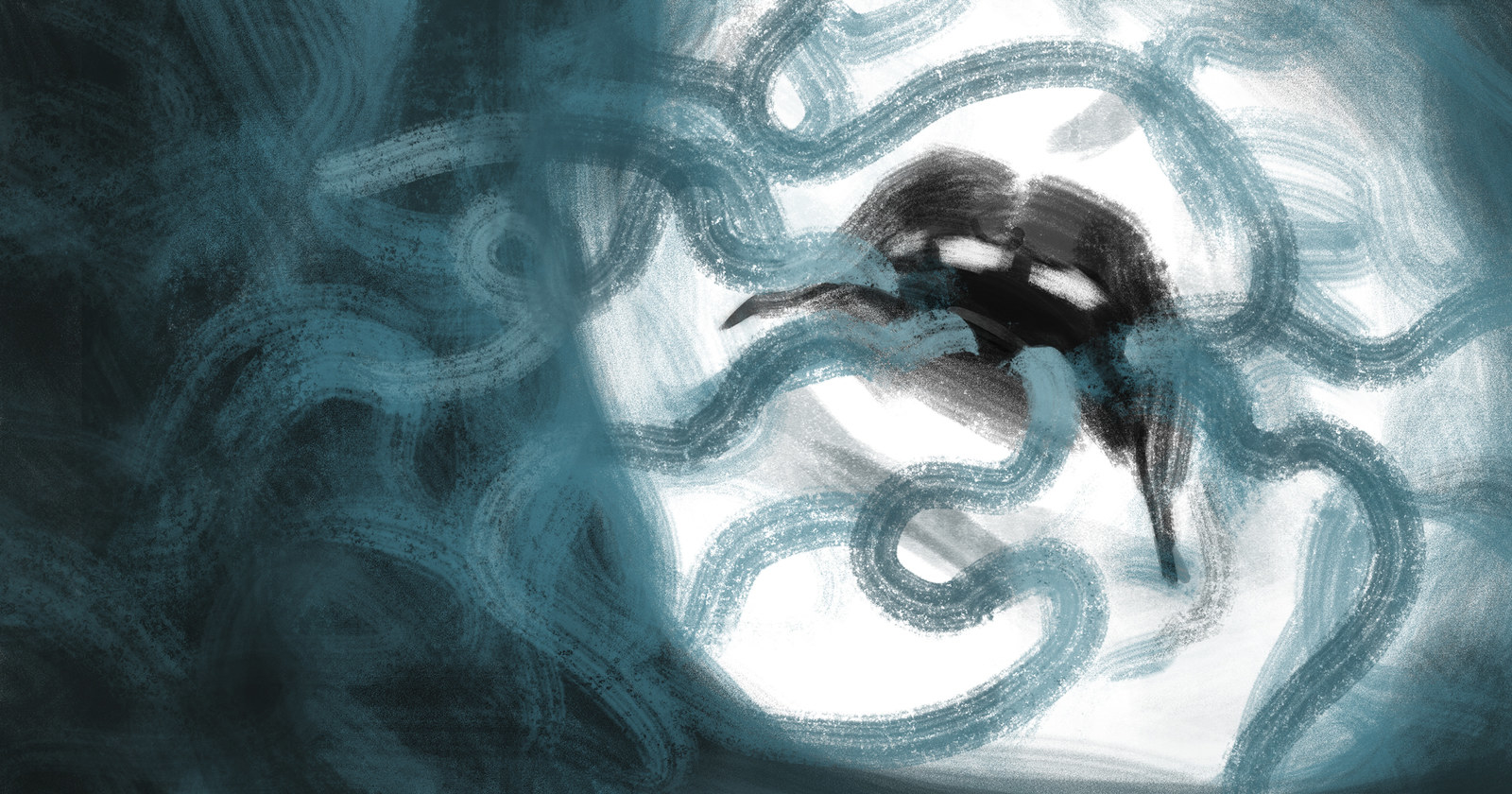
III. Hypoxic
Convulsions
Daddy is the architect of a baby girl’s roll and rock. He teaches her to manage slink, schools her in a woman’s wet engine. If Zara lives—which she most definitely will not—someone else’s daddy will teach her all the one way there is not to get lured into a sack, how to lay quietly in the wrong skirt while her muscles argue, how one well-timed convulsion usually clears the dance floor. Like good drowning, good dancing hits the backside like an annoyance that must be watusied loose. But how to respond to a sudden wet that’s out to rearrange? Of course— drums are injected— and Tierra, all thrash and snapdragon, shimmies for her giggle back. Baby is the battery black women build their bodies around until they’re old enough to be officially romanced by yet another revision of Jesus.
Right now they’re too little to feel the full hand of the Jesus voice, the caress of proverb and psalm. But they’re flirting with that Big Daddy for all their little worth—look at that itty jerk and boogaloo, that pop swirling of hips that can’t find, that runaway rimshot in their unfinished chests. They’re rearing back, opening wide, rearing back, opening wide, rearing back, both throats opening and slamming shut with river.
Cue the skanky music. Brackish water snags the rhythm, controls their arms and ankles, gleefully involves their necks, it says Baby, save the last dance for me.
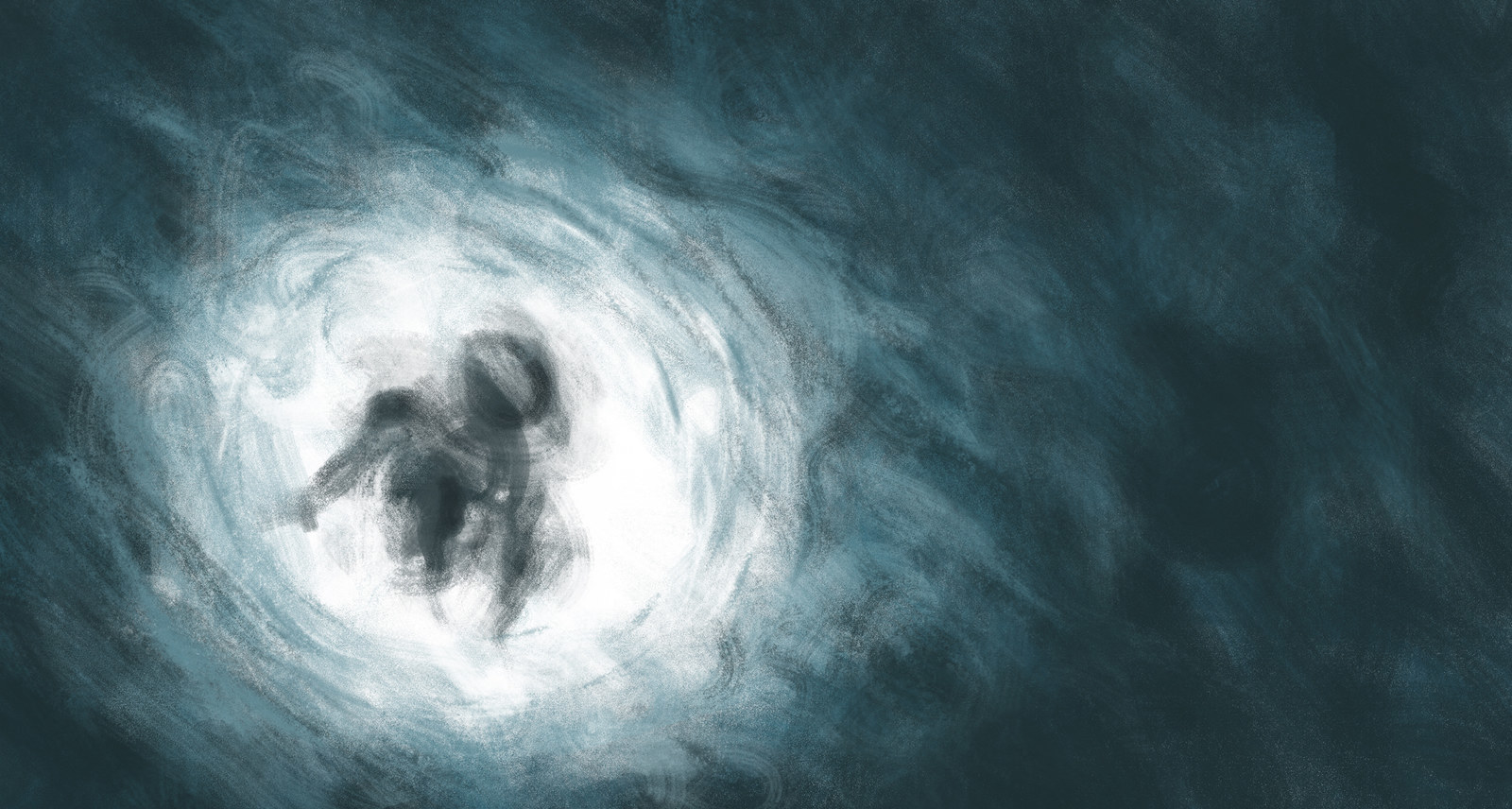
IV. Unconsciousness
The river, tho. She’s sluggish and cagey and a bitch sometimes. She has not decided to accept Zara, this vexation in her mouth. She is dazzled by choke, flopped blossoms and the occasional seduced diver, but repulsed by all frailties of skin. The river is seldom in a mood to have her swerve scrutinized or interrupted. Now what is this damned hindrance, keeling over in the current? Prying the sack wide with gush, she prods the puckered contents, is not entertained. Intending to add the ugly pudge to her baubles, she finds that she cannot rouse it, is so not entertained. The little blue not-fish thing is flaccid, so unfun, snazzed up in its sopping petal pink, the eyes slit and rolling, nappy crown trapping living things that desperately need to breathe. The hide skids and burps. The river’s most devoted feeders, so jazzed at first, have already had a go at it. And the thing won’t give the river its props, won’t beg for refuge in the water’s arms, it won’t say anything. The river flicks a bored blue finger at it, then flicks it away. She is so over this drama. Hell, the end of anything is only a kick to watch once.
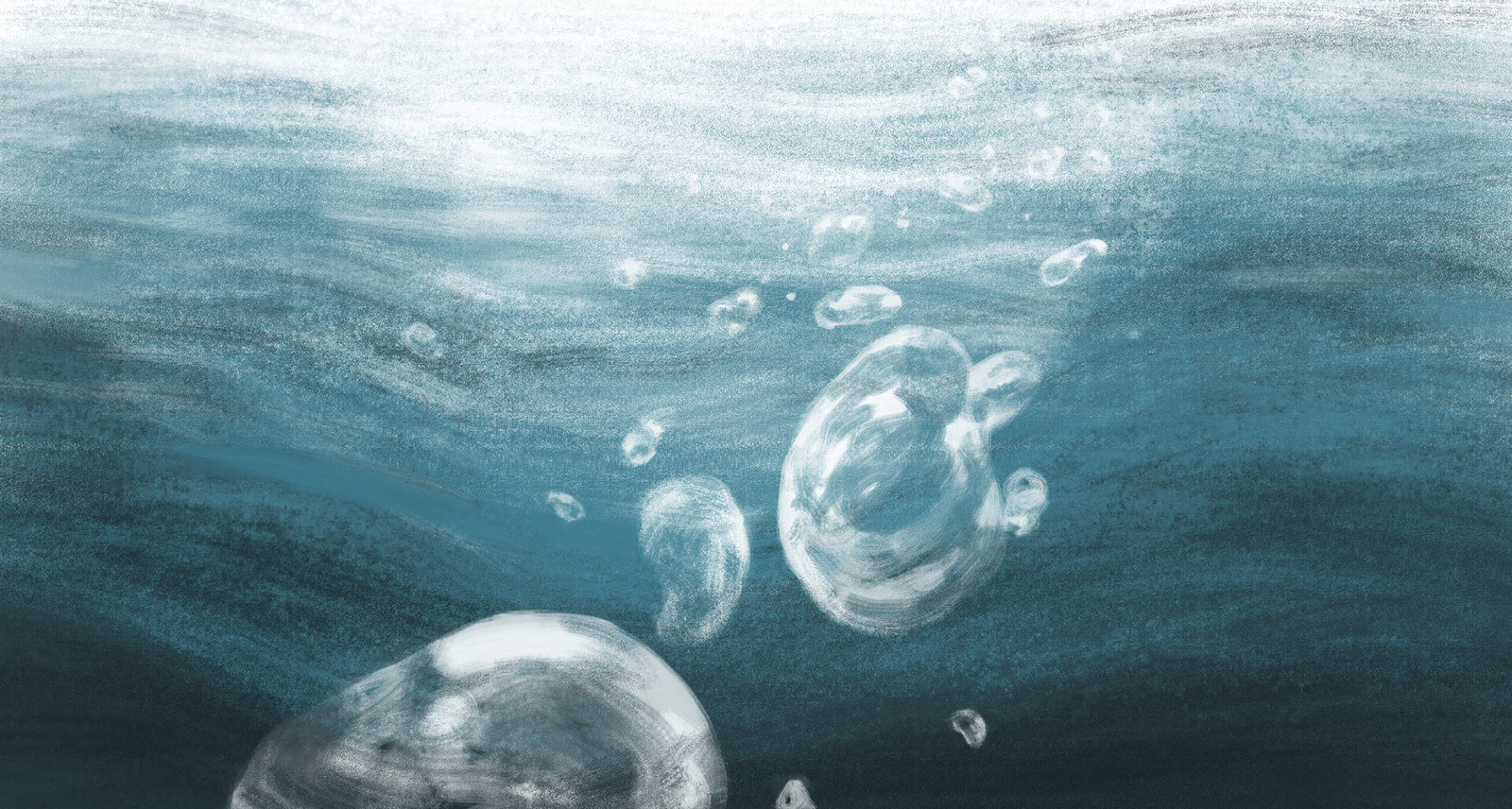
V. Clinical Death
The final stage in the drowning process is death. Clinical death occurs when both breathing and circulation stop. The victim is in cardiac arrest. The heart stops pumping blood. The vital organs are no longer receiving oxygen rich blood. The lack of oxygen causes the skin to turn blue.
There are 52 shades of blue— or a million and 52, depending upon which river you ask.
3: Cornflower.
17: Cerulean.
21: Blunt force.
28: Turquoise.
34: Navy.
37: Fix for her bitch ass now.
41: Sky.
47: Goodbye--but the way the river says it: “Bye”—all dismissal and shade.
52: Goodbye--but the way a daddy says it—over his shoulder, thrilling the done of the deed, already mad at the traffic.
"The Five Stages of Drowning" is from the book "Incendiary Art," upcoming from Northwestern University Press in February 2017.
Patricia Smith is the author of six books of poetry, including Shoulda Been Jimi Savannah (2012), which won the Lenore Marshall Prize from the Academy of American Poets; Blood Dazzler (2008), a chronicle of the human and environmental cost of Hurricane Katrina which was nominated for a National Book Award; and Teahouse of the Almighty, a 2005 National Poetry Series selection published by Coffee House Press. Her work has appeared in Poetry, the Paris Review, the New York Times, TriQuarterly, Tin House, The Washington Post, and in both Best American Poetry and Best American Essays. She is a 2014 Guggenheim fellow, a 2012 fellow at both MacDowell and Yaddo, a two-time Pushcart Prize winner, recipient of a Lannan fellowship and a four-time individual champion of the National Poetry Slam, the most successful poet in the competition’s history.
